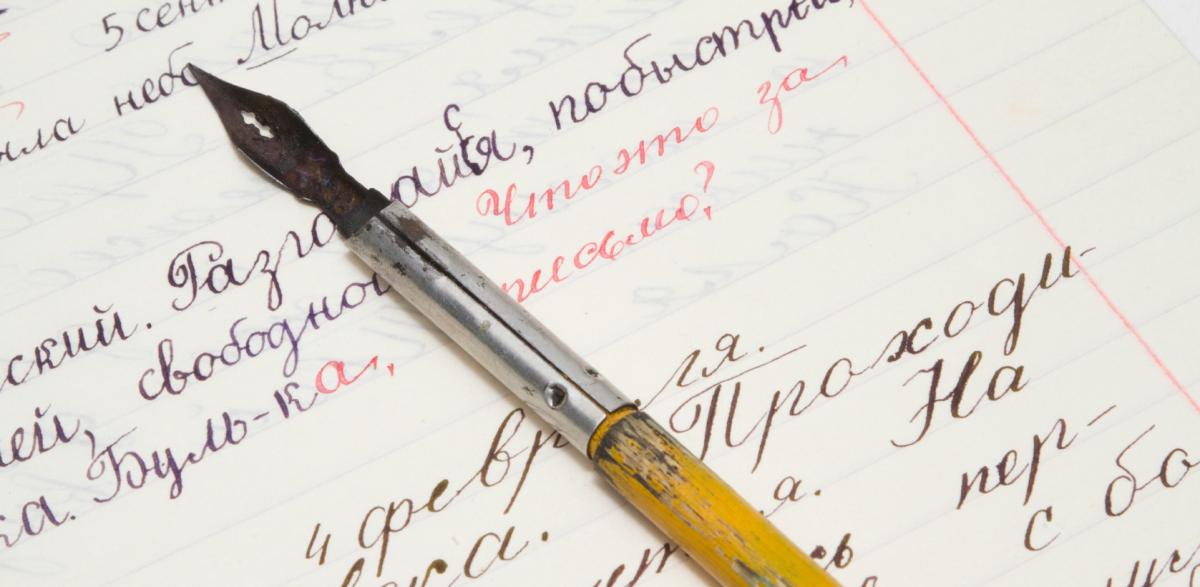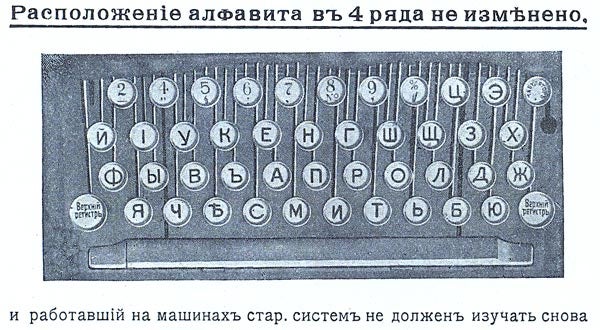
Writing in the Russian Major: From Exposition to Transposition
Overview
The Department of Slavic Languages teaches writing skills that prepare students for careers in both Polish-, Russian-, Ukrainian-, and English-language environments and provide them with a distinct competitive edge in graduate school. Our graduates pursue careers in foreign affairs, academia, business, teaching, law, and a host of other fields. We teach students to recognize the complexity inherent in all cultures, and we provide them with the skills requisite for navigating an increasingly globalized world.
Writing for Russian majors is vertically embedded into a sequence of required courses stretching across all four years of the undergraduate curriculum. Beginning with “Intensive First-Level Russian,” students complete frequent writing assignments. This intensive approach to writing continues in every course in the department.
Writing in English
Instruction in writing is central to achieving the Department’s broader learning goals. The Slavic Languages Department offers rigorous instruction in three Slavic languages as well as several writing-intensive courses conducted in English. Our English-language courses form a central part of the Georgetown College curriculum, including first-year Writing and Culture seminars and advanced courses that fulfill the HALC and Diversity Global core requirements. In these courses we develop essential skills including close reading, critical thinking, and clear, persuasive writing. Our small class sizes allow for substantial individual feedback on all writing assignments while our curricular focus on the cultures of Eastern Europe and Eurasia challenges students to see the world from unfamiliar perspectives. In each English-language course, students learn to encounter diverse perspectives, understand them on their own terms, and then relate critically to what they have read in their own writing. Many of our courses include traditional academic writing alongside creative assignments, group work, and other less traditional forms of written communication. We believe that students should be proficient in many modes of writing and that the various kinds of writing reinforce one another.
Generative AI
Some of our courses ask students to engage directly with generative Artificial Intelligence (AI) on specific assignments. Others ban the technology outright. In all cases the department considers representing any work produced by AI or other technologies as the student’s own to be a breach of Georgetown University’s Honor Code. Suspected violations will be reported to the Honor Council for adjudication.
Writing in Russian
The Department of Slavic Language focuses on developing strong language skills. Accordingly, we focus on writing in Russian. After graduation, many of our students go on to work with the Russian language; it is one of our primary objectives to enable them to function there at a professional level. In devising the writing component of our curriculum, we have consulted ACTFL Proficiency Guidelines for writing in Russian.

Russian keyboard layout for Underwood typewriters, 1907.
The majority of our Russian majors have not studied Russian prior to their arrival at Georgetown. Accordingly, they begin their study with Intensive First-Level Russian and, progressing through the curriculum, end by taking a minimum of two fourth-level courses taught entirely in Russian. In our experience, these students generally function at ACTFL’s Advanced-Mid writing level by graduation.
Specifically, this means that they can narrate and describe with detail in all major time frames with good control of verbal aspect. They are able to write straightforward summaries on topics of general interest. Their writing exhibits a variety of cohesive devices in texts up to several paragraphs in length. They show good control of the most frequently used syntactic structures and a range of general vocabulary. Most often, they express thoughts clearly and with some elaboration. Writing at the Advanced-Mid level is understood readily by natives not used to the writing of non-natives.
Some students come to our program with significant previous language training and begin their studies at the Second Level or higher. They may take advanced courses, including “Professional Russian” and cultural courses taught exclusively in Russian. These students may achieve ACTFL’s Advanced-High level.
This means that they are able to write about a variety of topics with significant precision and detail. They can handle informal and formal correspondence according to appropriate conventions. They can write summaries and reports of a factual nature. They can also write extensively about topics relating to particular interests and special areas of competence. Advanced High writers can narrate and describe in the major time frames, with solid control of verbal aspect. In addition, they handle more advanced writing tasks, such as developing arguments and constructing hypotheses. They have good control of a range of grammatical structures and a fairly wide general vocabulary.
Intensive Training
At Georgetown, we teach the first four semesters of Russian (First-Level and Second-Level Russian) intensively. All sections meet five days per week for a total of six academic credit hours per semester per section. Students complete low-stakes writing assignments for every class and receive comments and corrections on them. They also engage regularly in higher-stakes writing (quizzes and exams featuring compositions, written dialogues, etc.). Students are required to correct and rewrite high-stakes assignments.
At the third level, the Department offers two different courses, both of which require substantial writing and rewriting (“Russia(n) in Context” and “Third-Level Russian”). Russian majors are required to take both courses, one of which meets on Mondays and Wednesdays and the other on Tuesdays and Thursdays, thereby guaranteeing regular writing assignments. Most majors spend at least one semester in Russia, where they must write in Russian in all the classes they take.
In their fourth year, Russian majors choose a minimum of two courses taught in Russian from a menu of options including advanced language, translation, literature, linguistics, film, and the Russian internet. Students who take the equivalent of our “Third-Level Russian” abroad must take “Fourth-Level Russian” at Georgetown in order to assure a strong, Georgetown-guided focus on writing. At the fourth level, written assignments are somewhat fewer in number but are more sophisticated and longer. Those students who take our graduate-level language courses complete correspondingly more advanced writing assignments.